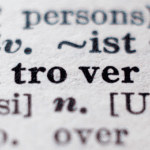
The Google Effect: How Search Engines Are Reshaping Our Memory

In an era where information is available at our fingertips, the way we remember and process information has undergone a significant transformation. The “Google Effect,” a term coined by psychologists Betsy Sparrow, Jenny Liu, and Daniel M. Wegner in their 2011 study, refers to the phenomenon where people are more likely to forget information that they believe can be easily found online. This blog post delves into the intricacies of the Google Effect, exploring its implications on our cognitive abilities, backed by statistics and research findings.
Understanding the Google Effect
The Google Effect is essentially a cognitive bias where our brains are less likely to retain information if we know it can be quickly accessed through search engines like Google. This shift in memory processing is a direct result of the internet’s pervasive presence in our daily lives.
In the study that first identified this phenomenon, participants were asked to type 40 trivia statements into a computer. Half were told the computer would save their entries, while the other half were told the information would be erased. The results showed that those who believed the information would be saved were significantly less likely to remember the facts. Instead, they remembered how to access the information, such as which folder it was saved in.
Statistics That Illustrate the Google Effect
- Memory Retention: According to the original 2011 study, participants who were told that their typed information would be accessible later remembered 40% fewer facts than those who believed the information would be deleted.
- Search Engine Dependency: A 2019 survey by Kaspersky found that 91% of people admitted to using the internet as an extension of their memory, relying on search engines for information they previously would have memorized.
- Information Recall: Research from Columbia University found that individuals are more likely to remember where information is stored rather than the information itself. This tendency was observed in over 30% of the participants in their experiments.
- Digital Amnesia: A 2015 study by Kaspersky Lab revealed that 71% of people could not recall the phone numbers of their children, and 57% couldn’t remember their work number without looking it up. This phenomenon, often linked to the Google Effect, is sometimes referred to as “digital amnesia.”
- Educational Impact: A 2020 study published in the journal Memory reported that students who frequently use the internet to find answers rather than attempting to recall information themselves scored 20% lower on memory tests than those who relied on their own knowledge.
The Psychological Impact of the Google Effect
The Google Effect has profound implications for how we process and store information. The shift from memory retention to information retrieval changes the very nature of how we learn and remember. While this can be seen as a positive adaptation in an age of information overload, it also raises concerns about our cognitive health.
- Cognitive Offloading: This is the process of relying on external tools (like Google) to handle cognitive tasks that we would otherwise perform ourselves. While this can free up mental resources, it can also lead to a decrease in our ability to remember and process information independently.
- Reduced Critical Thinking: When we rely on search engines for quick answers, we may become less inclined to engage in deep, critical thinking. Instead of analyzing and synthesizing information, we may simply accept the first result we find, which can lead to superficial understanding.
- Impact on Long-term Memory: The Google Effect suggests that while we might remember how to access information, we are less likely to store it in our long-term memory. This shift could have implications for how we build and retain knowledge over time.
Adapting to the Google Effect
While the Google Effect is a natural consequence of living in a digital age, there are ways to adapt and mitigate its impact on our cognitive abilities:
- Active Recall: Make a conscious effort to recall information without immediately turning to a search engine. This practice can strengthen memory retention and cognitive abilities.
- Mindful Internet Use: Be aware of when and why you are using search engines. Try to balance the convenience of quick searches with the benefits of relying on your memory.
- Engage in Deep Learning: Instead of skimming information, take time to deeply engage with content. This can involve reading books, taking notes, and discussing topics with others to reinforce learning.
- Practice Memory Techniques: Techniques such as mnemonic devices, visualization, and association can help improve memory retention, making you less reliant on external tools.
Conclusion
The Google Effect is a testament to how technology is reshaping our cognitive processes. While it offers the convenience of instant access to information, it also challenges our ability to remember and process knowledge independently. By understanding the implications of the Google Effect and adopting strategies to mitigate its impact, we can strike a balance between leveraging technology and maintaining our cognitive health. As we navigate the digital age, it’s crucial to remember that while search engines like Google are powerful tools, our brains remain the most valuable resource for knowledge and understanding.
Hello, I am Aman (: Full Time Traveler :) At the age of 41, in April 2023, fueled by my love for travel and the determination not to remain fixed like a tree, I embarked on a bold journey. Having dedicated 17 years to a corporate job, I chose to transition from a full-time employee to a full-time traveler, driven by the desire to break free from the routine and constraints of a conventional life. Along the way, I not only explored the wonders of travel but also uncovered the transformative power of financial freedom. I realized how it could liberate me to lead a life teeming with adventure, purpose, and fulfillment. Through my blogs, I am passionately sharing my story, aiming to inspire and provide valuable guidance to those, like me, who aspire to weave travel into a life overflowing with limitless possibilities.






















Post Comment
You must be logged in to post a comment.